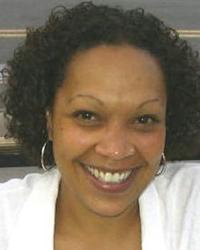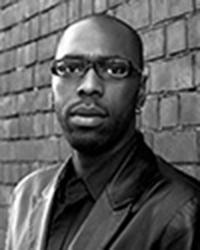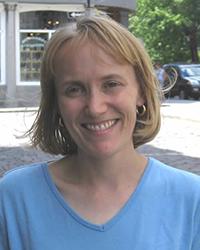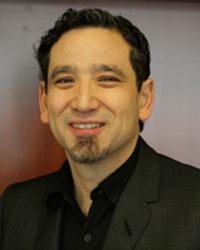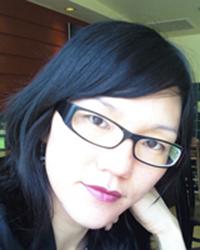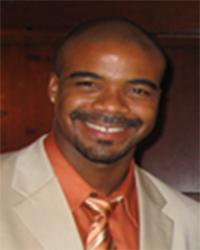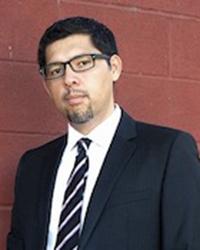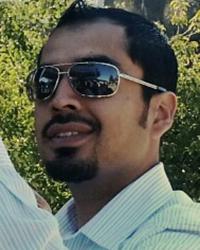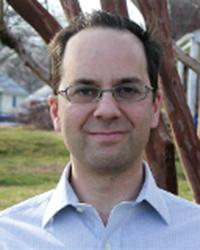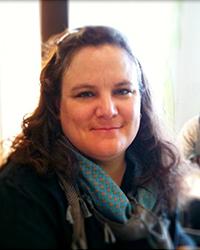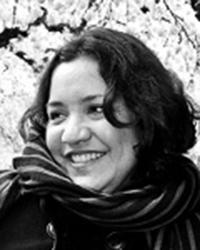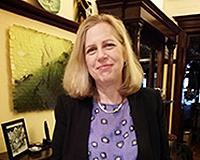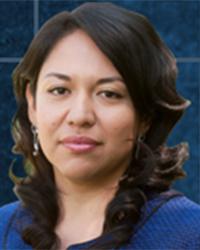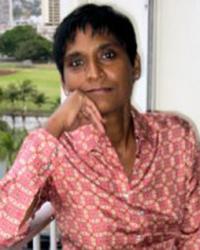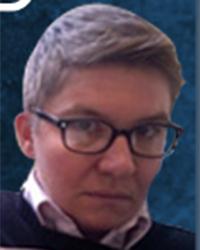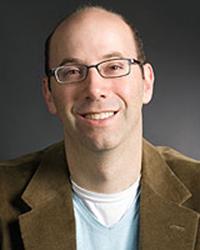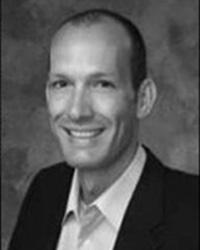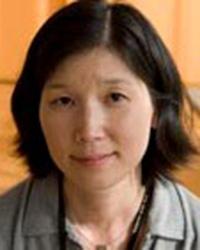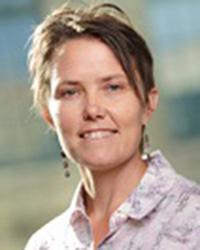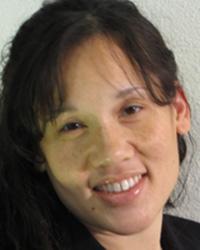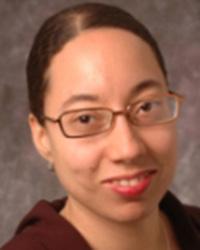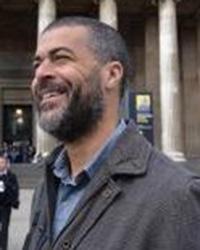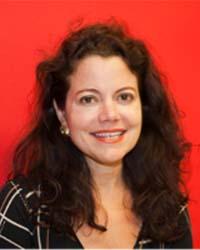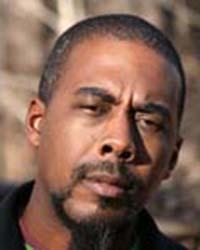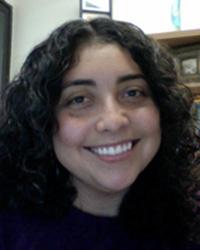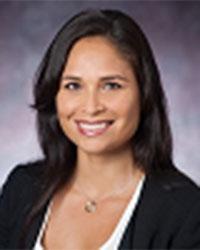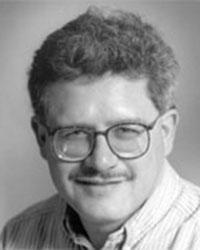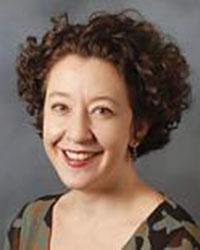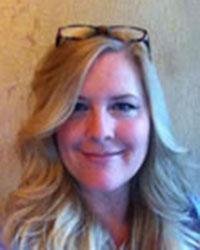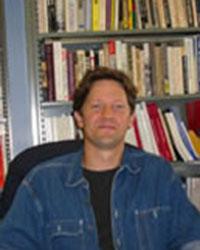CGMS March 2014 Conference: The Migrant Metropolis
Participants in this conference will examine how urban spaces in the modern United States have been built and re-built by the movement of people. The conference will focus on the impact of migration and immigration on the networks of cities, suburbs, and hinterlands long central to organizing American life.
Conference Information
March 13-14, 2014
University of Maryland, College Park, MD
About the Conference
Participants in this conference will examine how urban spaces in the modern United States have been built and re-built by the movement of people. The conference will focus on the impact of migration and immigration on the networks of cities, suburbs, and hinterlands long central to organizing American life. The metropolis is fashioned not just by powerful interests, clear-cut "push" and "pull" factors, and resultant population changes. Equally formative are the varieties of aspirational politics, commercial activity, and cultural production that accompany migration and community building.
Presentations and discussions will revisit traditional questions about assimilation, the role of racial or ethnic identity, and the formal (legal) politics of belonging by introducing a range of new vantage points, including: regional, borderland, and transnational community-building; the spatial politics of metropolitan inclusion and exclusion; the political economy of policing and incarceration; and global circuits of intellectual and cultural production. Scholars will examine how metropolitan spaces have historically served as catalysts for changing ideas about citizenship, for acceptable uses of state power, and for ongoing processes of racial formation. The Migrant Metropolis will foster conversations about the ways that urbanized sites are not simply places but also processes, integral to shaping political, economic, and cultural life in the modern United States.
The Migrant Metropolis is being organized by Wendy Cheng (Arizona State University), Nathan Connolly (Johns Hopkins University), David Freund (University of Maryland), Jesse Hoffnung-Garskof (University of Michigan), Ana Elizabeth Rosas (University of California, Irvine), and Andrew Wiese (San Diego State University).
The conference is free and open to the public - no registration is required. It is co-sponsored by Our American Journey: the Smithsonian Immigration/Migration Initiative; College of Arts and Humanities; Department of American Studies; Department of History; Department of Sociology; Office of Undergraduate Studies; School of Languages, Literatures, and Culture; and the Maryland Population Research Center.
Schedule
Thursday, March 13, 2014
4:00pm
Reception
4:45pm
Opening Comments: The Post-Hart-Celler Metropolis
5:15pm
Keynote Address by Saket Soni, Director of the National Guestworker Alliance/New Orleans Workers' Center for Racial Justice
7:00pm
Dinner for Conference Participants
Friday, March 14, 2014
8:30am
Session 1: Building the Metropolis / Making Place
Session 1A: Making Homes
Location: Jiménez Room, Stamp Student Union
Charlotte Brooks (Baruch College)
Alicia Schmidt Camacho (Yale University)
David Chang (University of Minnesota)
Laura Fugikawa (University of Illinois, Chicago)
Chair: Theresa Runstedtler (American University)
Session 1B: Region to What Degree
Location: Pyon Su Room, Stamp Student Union
Volker Janssen (California State University, Fullerton)
George J. Sanchez (University of Southern California)
Perla Guerrero (University of Maryland)
Willow Lung-Amam (University of Maryland)
Chair: Eric Porter (University of California, Santa Cruz)
10:30am
Session 2: Making Race
Session 2A: Race and Place
Location: Pyon Su Room, Stamp Student Union
Wendy Cheng (Arizona State University)
David Freund (University of Maryland)
Nathan Connolly (Johns Hopkins University)
Samuel Roberts (Columbia University)
Chair: Andrew Wiese (San Diego State University)
Session 2B: Immigration and the Black Atlantic
Location: Jiménez Room, Stamp Student Union
Leslie M. Alexander (Ohio State University)
Jesse Hoffnung-Garskof (University of Michigan)
Ana Yolanda Ramos-Zayas (Rutgers University)
Chair: Julie Greene (University of Maryland)
12:15pm
Lunch Break
1:30pm
Presentation of Our American Journey: Many Voices, One Nation (Jiménez Room)
2:00pm
Session 3: Controlling the Metropolis
Session 3A: The Right to the City
Location: Pyon Su Room, Stamp Student Union
Juan De Lara (University of Southern California)
Martha Gonzalez (Scripps College)
Lorrin Thomas (Rutgers University, Camden)
Monisha Das Gupta (University of Hawai'i)
Chair: Christina Hanhardt (University of Maryland)
Session 3B: The Carceral Metropolis
Location: Jiménez Room, Stamp Student Union
Jenna Loyd (University of Wisconsin-Milwaukee)
Adrian Felix (University of California, Santa Cruz)
Ana Elizabeth Rosas (University of California, Irvine)
Donna Murch (Rutgers University)
Chair: Heather Thompson (Temple University)
4:00pm
Session 4: Metropolitan/Migrant History as Intellectual History
Location: Jiménez Room, Stamp Student Union
Davarian Baldwin (Trinity College)
Laura Liu (New School)
Khalil Gibran Muhammad (Schomburg Center for Research in Black Culture)
Chair: Philip Ethington (University of Southern California)
6:00pm
Closing Plenary Discussion
Location: Jiménez Room, Stamp Student Union
Conference Participants
Speaker Bios
Leslie M. Alexander is Associate Professor in the Department of African American and African Studies at Ohio State University. Her first monograph, African or American?: Black Identity and Political Activism in New York City, 1784-1861, explores black culture, identity, and political activism during the early national and antebellum eras. She is also the co-editor of “We Shall Independent Be”: African American Place-Making and the Struggle to Claim Space in the United States and the Encyclopedia of African American History. Most recently, she published “The Black Republic: The Influence of the Haitian Revolution on Black Political Consciousness, 1817-1861” in African Americans and the Haitian Revolution: Selected Essays and Historical Documents (eds. Maurice Jackson and Jacqueline Bacon, Routledge, 2009).
Davarian L. Baldwin is Paul E. Raether Distinguished Professor of American Studies at Trinity College. Alongside numerous essays and scholarly articles, he is the author of Chicago's New Negroes: Modernity, the Great Migration, and Black Urban Life (UNC, 2007) and co-editor, with Minkah Makalani, of the essay collection Escape From New York! The New Negro Renaissance beyond Harlem (Minnesota, 2013). Baldwin is currently at work on two new single-authored projects, Land of Darkness: Chicago and the Making of Race in Modern America (Oxford University Press) and UniverCities: How Higher Education is Transforming Urban America. He is also editing the Encyclopedia of the Harlem Renaissance: Using the Present to Excavate the Past (Greenwood Publishers).
Charlotte Brooks is Associate Professor in the Department of History at Baruch College. She is the author of Alien Neighbors, Foreign Friends: Asian Americans, Housing, and the Transformation of Urban California (University of Chicago Press, 2009). She is currently finishing her second book, Between Mao and McCarthy: Chinese American Political Culture in the Cold War Years. She has also begun research for a third book, The “Problem” of Overseas Chinese Education, the Back to China Movement, and the Creation of Chinese American Identity, 1900-1949.
David Chang is Professor in the Department of History at the University of Minnesota. He is a historian of race and ethnicity in Hawai'i and the United States, focusing especially on the histories of American Indians and Native Hawaiians. His first book, The Color of the Land (UNC Press, 2010) argues for the central place of struggles over the ownership of Native American lands in the history of racial and national construction by Creeks, African Americans, and whites in the Creek Nation and eastern Oklahoma. He is currently engaged in a long-range research project in Native Hawaiian history.
Wendy Cheng is Assistant Professor of Justice and Social Inquiry and Asian Pacific American Studies in the School of Social Transformation at Arizona State University. Her research focuses on race and ethnicity, comparative racialization, critical geography, and urban and suburban studies. Her book, The Changs Next Door to the Díazes: Remapping Race in Suburban California (University of Minnesota Press, 2013) develops a theory of regional racial formation through the experiences and perspectives of residents of majority nonwhite, multiracial suburbs. Her current project looks at the racial formation and political activism of Taiwanese graduate students in the United States from the 1960s through the 1980s.
Nathan Connolly is Assistant Professor in the Department of History at Johns Hopkins University. His research and teaching interests include the history of American property rights, the intersection of Jim Crow segregation and capitalism, American liberalism and conservatism as reflections of black class politics, and black encounters with late-20th-century “diversity” discourse in the United States. His forthcoming book, A World More Concrete: Real Estate and the Remaking of Jim Crow South Florida (University of Chicago Press), argues that between the early 1900s and the 1960s property ownership helped set the terms of Jim Crow segregation.
Juan De Lara is Assistant Professor of American Studies and Ethnicity at the University of Southern California. His research interests include social justice and social movements, the political economy of uneven development, urbanization, race and ethnicity, labor, California and the West, Los Angeles, and the U.S./Mexico border.
Philip Ethington is Professor of History and Political Science at the University of Southern California, North American Editor and Multimedia Editor of the journal Urban History (Cambridge University Press), and Co-Director (with Tara McPherson) of the USC Center for Transformative Scholarship. Ethington's scholarship explores the past as a cartography of time. His recent publications include theoretical work on a spatial theory of history; sociological studies of residential segregation; large-format maps of urban historical change; o nline interactive Web 2.0 tools, archives, and publications for urban studies; and museum exhibit collaborations. He is currently completing a large-format graphic book, interactive online publication, and public art exhibit Ghost Metropolis: Los Angeles, since 13,000 Before Present.
Adrián Félix is Assistant Professor in the Latin American and Latino Studies Department at the University of California, Santa Cruz. From 2011-2013, he was a UC President’s Postdoctoral Fellow in the Department of Latin American and Latina/o Studies (LALS). His research focuses on Mexico-U.S. migration, migrant transnationalism, and racial/ethnic politics and identity. He is currently working on a book manuscript tentatively titled “Transnational (After)Life: The Political Life Cycle of El Migrante.”
David Freund is Associate Professor of History at the University of Maryland specializing in 20th-century U.S. history, with a research focus on the American metropolis, racial politics, and the impacts of public policy on economic opportunity and popular ideology. His current projects include a book-length history of the federal state's impact on financial markets, economic growth, and free market ideology since the Great Depression and The Modern American Metropolis, an edited source book for Wiley Blackwell.
Laura Fugikawa is Visiting Assistant Professor of Asian American Studies and Gender & Women's Studies at the University of Illinois, Chicago. Her interdisciplinary teaching looks at the intersections of race, class, gender, and sexuality in 20th- and 21st-century US culture through close readings of historical documents, contemporary events, literature, and film. Most recently, she was a Chancellors’ Postdoctoral Fellow in Asian American Studies at the University of Illinois Urbana-Champaign (2011-2012). Broadly, her interdisciplinary research interests include Comparative Ethnic, Asian American, American Indian, Women, Gender, and Queer Studies.
Martha Gonzalez is Assistant Professor of Chicana/o Latina/o Studies at Scripps College. Her research interests include Chicana feminist theory, Chican@ music and popular culture, transnational musical dialogues, and feminist development theory. She specifically looks at the informal translocal dialogues between Jarocha/o communities in Mexico and Chicana/o and Latin@ communities in the U.S. She has a Ph.D. in Feminism from the University of Washington, Seattle.
Julie Greene is Professor of History at the Unviersity of Maryland with particular interest in the history of labor, the working-class, and immigration. Her most recent book, The Canal Builders: Making America's Empire at the Panama Canal (Penguin Press, 2009), focuses on the tens of thousands of workingmen and workingwomen who traveled from all around the world to live and labor on the canal project. She is founding co-director of the Center for the History of the New America.
Perla Guerrero is Assistant Professor in the Department of American Studies at the University of Maryland. Her research and teaching interests focus on comparative race and ethnicity, immigration, space and place, labor, and 20th century U.S. history. As an interdisciplinary scholar, her work is informed by historical methods and human geography as they pertain to Latina/o Studies, American Studies, and the U.S. South. She is currently working on her book manuscript tentatively titled, Latinas/os and Asians Remaking Arkansas: Race, Labor, Place, and Community, which explores how regional history and the labor sphere shaped social relations.
Monisha Das Gupta is Associate Professor of Ethnic Studies and Women's Studies at the University of Hawai'i. Her book, Unruly Immigrants: Rights, Activism, and Transnational South Asian Politics in the United States (Duke University Press, 2006), was winner of the 2008 American Sociological Association Section on Asia and Asian America Book Award and the 2008 Association of Asian American Studies Best Book in Social Sciences Award. Her current research project involves the interface between the immigrant rights movement in the US and immigration policies as well as Mexican immigration to Hawai'i.
Christina B. Hanhardt is Associate Professor in the Department of American Studies at the University of Maryland. Her research focuses on the history and contemporary forms of U.S. social movements and cities since the mid-20th century, with an emphasis on the politics of deviance, punishment, and uneven development. Her first book, Safe Space: Gay Neighborhood History and the Politics of Violence (Duke University Press, 2013), is a history of lesbian, gay, bisexual, and transgender activism against violence in New York and San Francisco since the 1960s. Her next project, Left Out, looks at how certain social movements have organized highly stigmatized and criminalized low-income communities, including those who have used drugs, exchanged sex for money, been diagnosed as mentally ill, and/or been incarcerated.
Jesse Hoffnung-Garskof is Associate Professor of American Culture and History and Director of the Center for Latin American and Caribbean Studies at the University of Michigan. His research interests include Latino studies, Latin American and Caribbean history, transnational migrations, music, race, and ethnicity. He is author of A Tale of Two Cities: Santo Domingo and New York after 1950 (Princeton University Press, 2008).
Volker Janssen is Associate Professor of History at California State University, Fullerton. His Ph.D. dissertation, “Convict Labor, Civic Welfare: Rehabilitation in California's Prisons, 1941-1971,” explored the relationship between the rise and fall of the postwar liberal welfare state and the ascendancy and demise of an ideology of rehabilitative corrections. Janssen specializes in the social, economic, and institutional history of California, and has recently developed a new interest in the history of technology.
Laura Liu s Assistant Professor of Urban Studies at the New School. Her research interests include urban, political, and feminist geography; gender and ethnic studies; community and class organizing; migration and work; race and space; and Chinatowns. She has published articles in Urban Geography; Gender, Place, and Culture; and Social and Cultural Geography and a chapter in In Indefensible Space: The Architecture of the National Insecurity State (ed. Michael Sorkin, Routledge, 2007).
Jenna M. Loyd is Assistant Professor of Public Health Policy & Administration in the Zilber School of Public Health at the University of Wisconsin-Milwaukee. Her first book, Health Rights are Civil Rights: Peace and Justice Activism in Los Angeles, 1963-1978 (2014, University of Minnesota Press) investigates everyday understandings of health and violence and people’s grassroots mobilizations for health and social justice. Her second area of research concerns the criminalization of migration and US immigration detention policy. She co-edited, with Matt Mitchelson and Andrew Burridge, Beyond Walls and Cages: Prisons, Borders, and Global Crisis (2012, University of Georgia Press). She is currently co-authoring a book on the history of the US immigration detention system with Alison Mountz.
Willow Lung-Amam is Assistant Professor in the School of Architecture, Planning and Preservation at the University of Maryland. Her scholarship focuses on the link between social inequality and the built environment and looks at immigration and diversity in American cities and suburbs, and social and environmental justice issues as they relate to the built form of cities, urban policy, and planning practice. She is currently working on a book on Asian immigration in Silicon Valley, which investigates how recent trends in high tech immigration are reshaping suburban form, geographies of race, and politics of development in the region.
Kahlil Gibran Muhammad is Director of the Schomburg Center for Research in Black Culture at the New York Public Library. He formerly was Professor of History at Indiana University. He is author of The Condemnation of Blackness: Race, Crime, and the Making of Modern Urban America (Harvard University Press, 2010).
Donna Murch is Associate Professor of History at Rutgers University. She is author of Living for the City: Migration, Education, and the Rise of the Black Panther Party in Oakland, California (University of North Carolina Press, 2010) as well as multiple journal articles. Her scholarly interests include the urban history of California and New York; Civil Rights, Black Power and postwar social movements; history of policing and prisons; and the political economy of drugs. She is currently researching the postwar history of the Bronx and completing a new book on youth culture and the underground economy.
Eric Porter is Professor in the Departments of American Studies, History, and History of Consciousness at the University of California, Santa Cruz. His research interests include lack cultural and intellectual history, U.S. cultural history and cultural studies, critical race and ethnic studies, and popular music and jazz studies. His most recent book (with Lewis Watts) is New Orleans Suite: Music and Culture in Transition (University of California Press, 2013).
Ana Yolanda Ramos-Zayas is Professor in the Department of Black and Latino Studies at Baruch College and in the Center for Latin American, Caribbean, and Latino Studies at the CUNY Graduate Center. Her book, Street Therapists: Race, Affect, and Neoliberal Personhood in Latino Newark (University of Chicago Press, 2012), draws from almost a decade of ethnographic research in largely Brazilian and Puerto Rican neighborhoods in Newark, New Jersey and examines how affect, emotion, and sentiment serve as waypoints for the navigation of interracial relationships among US-born Latinos, Latin American migrants, blacks, and white ethnics.
Samuel Roberts is Associate Professor of History and Sociomedical Sciences at Columbia University. He writes, teaches, and lectures widely on African-American history, the history of public health, urban history, and the history of social movements. His book, Infectious Fear: Politics, Disease, and the Health Effects of Segregation (University of North Carolina Press, 2009), is an exploration of the political economy of health and tuberculosis control between the late nineteenth century and the mid-twentieth century. Contrary to conventional interpretations, Roberts argues that the local politics of race and labor greatly influenced the evolution of antituberculosis measures and the development of the early public health state.
Ana Elizabeth Rosas is Assistant Professor in the Chicano/Latino Studies Department and History Department at the University of California, Irvine. Her research interests include Chicana/o history, comparative immigration and ethnic history, gender studies, and oral history. She is currently completing a book manuscript on the mid-20th century Mexican immigrant family experience in Mexico and the United States.
Theresa Runstedtler is Associate Professor of History at American University. Her research focuses on black popular culture and black internationalism. Her book, Jack Johnson, Rebel Sojourner: Boxing in the Shadow of the Global Color Line (University of California Press, 2012), winner of the 2013 Phillis Wheatley Book Prize from the Northeast Black Studies Association, explores the first African American world heavyweight champion’s legacy as a black sporting hero and anticolonial icon in places as far-flung as Sydney, London, Cape Town, Manila, Paris, Havana, and Mexico City. She has also published scholarly articles in Radical History Review and Journal of World History, and book chapters in Escape from New York: The New Negro Renaissance Beyond Harlem and In the Game: Race, Identity, and Sports in the Twentieth Century.
George J. Sanchez is Professor of American Studies & Ethnicity and History at the University of Southern California. He is the author of Becoming Mexican American: Ethnicity, Culture and Identity in Chicano Los Angeles, 1900-1945 (Oxford, 1993), co-editor of Los Angeles and the Future of Urban Cultures (Johns Hopkins University Press, 2005) and Civic Engagement in the Wake of Katrina (University of Michigan Press, 2009). He is currently working on a historical study of the ethnic interaction of Mexican Americans, Japanese Americans, African Americans, and Jews in the Boyle Heights area of East Los Angeles, California in the twentieth century.
Alicia Schmidt Camacho is Professor of American Studies and Ethnicity, Race, and Migration in the American Studies Program at Yale University. Her scholarship concerns the femicide in Ciudad Juárez, transnational migration, border governance, and social movements in the Americas. She is the author of Migrant Imaginaries: Latino Cultural Politics in the Mexico-U.S. Borderlands (NYU Press, 2008), and is currently at work on a second book project entitled “The Carceral Border: Social Violence and Governmentality on the Frontiers of Our America.”
Saket Soni is Executive Director of the National Guestworkers Alliance and the New Orleans Workers’ Center for Racial Justice. He has worked as an organizer in Chicago at the Coalition of African, Asian, European, and Latino Immigrants of Illinois, a city-wide immigrant rights coalition, and at the Organization of the North East. He co-authored “And Injustice For All: Workers' Lives In the Reconstruction,” the most comprehensive report on race in the Reconstruction of the post-Katrina Gulf Coast, and “Never Again: Lessons of the Gustav Evacuation,” an account of the treatment of African Americans in the sheltering process.
Lorrin Thomas is Associate Professor of History and Co-director of Latin American and Latino Studies at Rutgers University, Camden. Her research explores ideas about rights and equality in the 20th-century Americas. Her first book, Puerto Rican Citizen: History and Political Identity in Twentieth-Century New York City (University of Chicago Press, 2010), traces the complex meanings of citizenship for Puerto Ricans in the United States. Her new book project is a study of the politics of human rights around the Americas in the wake of the social and political movements of the 1960s.
Heather Thompson is Professor of History at Temple University. She is currently writing the first comprehensive history of the Attica Prison Rebellion of 1971 and its legacy. She is the author of Whose Detroit?: Politics, Labor and Race in a Modern American City (Cornell University Press, 2001) and has recently published an edited collection, Speaking Out: Protest and Activism in the 1960s and 1970s (Prentice Hall, 2009), as well as chapters on crime, punishment, and prison activism during the 1960s and 1970s in several edited collections. She has also written numerous scholarly articles on the current crisis of mass incarceration.
Andrew Wiese is Professor in the Department of History at San Diego State University. His interests include the history of suburbanization, housing, landscape, and the role of space in the production of race and class. He is the author of Places of Their Own: African American Suburbanization in the 20th Century (University of Chicago Press, 2004). He is also the editor, with Becky Nicolaides, of The Suburb Reader (Routledge, 2006), a volume on the history of American suburbia. He has served on the Board of Directors of the Urban History Association and the Society for American City and Regional Planning History.



